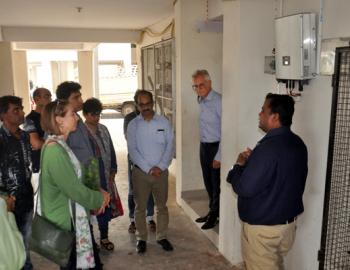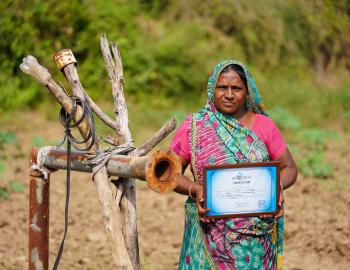Case study: Solar pump cooperative supports climate-smart agriculture in Gujarat
Case study: Solar pump cooperative supports climate-smart agriculture in Gujarat
This case study showcases how the installation of solar pumps for irrigation helped raise farmer incomes and reduced emissions in Dhundi, Gujarat.
With a changing climate, agriculture-based economies are seeking innovations that protect farmers and their livelihoods. Groundwater is the main source of irrigation in India, however the use of diesel to pump it from the ground is expensive and polluting.
In the village of Dhundi, in Gujarat, solar pumps were introduced in 2015 to pump water for irrigation, and sell any excess electricity to the grid. Through selling the excess electricity, farmers owning the pumps (the Solar Pump Irrigators’ Cooperatives Enterprise (SPICE)) have earned ‘climate-smart’ income, and have been incentivised to use groundwater and energy more sustainably.
Key messages from this case study include:
- Solar pumps generating electricity for irrigation in the village of Dhundi in Gujarat are increasing farmer incomes and incentivising the sustainable use of groundwater and energy.
- Two key success factors have been a local power utility willing to experiment with a new model and buy back electricity from farmers for 25 years, as well as a farmer cooperative improving the efficiency of the sale of electricity.
- The Dhundi example demonstrates the potential of solar pumps as a ‘cash crop’ for farmers, since they do not require any fertiliser, irrigation or labour and are not at risk from drought and floods. However, incentives need to be in place to pump only the amount of water required for irrigation to avoid groundwater exploitation.



